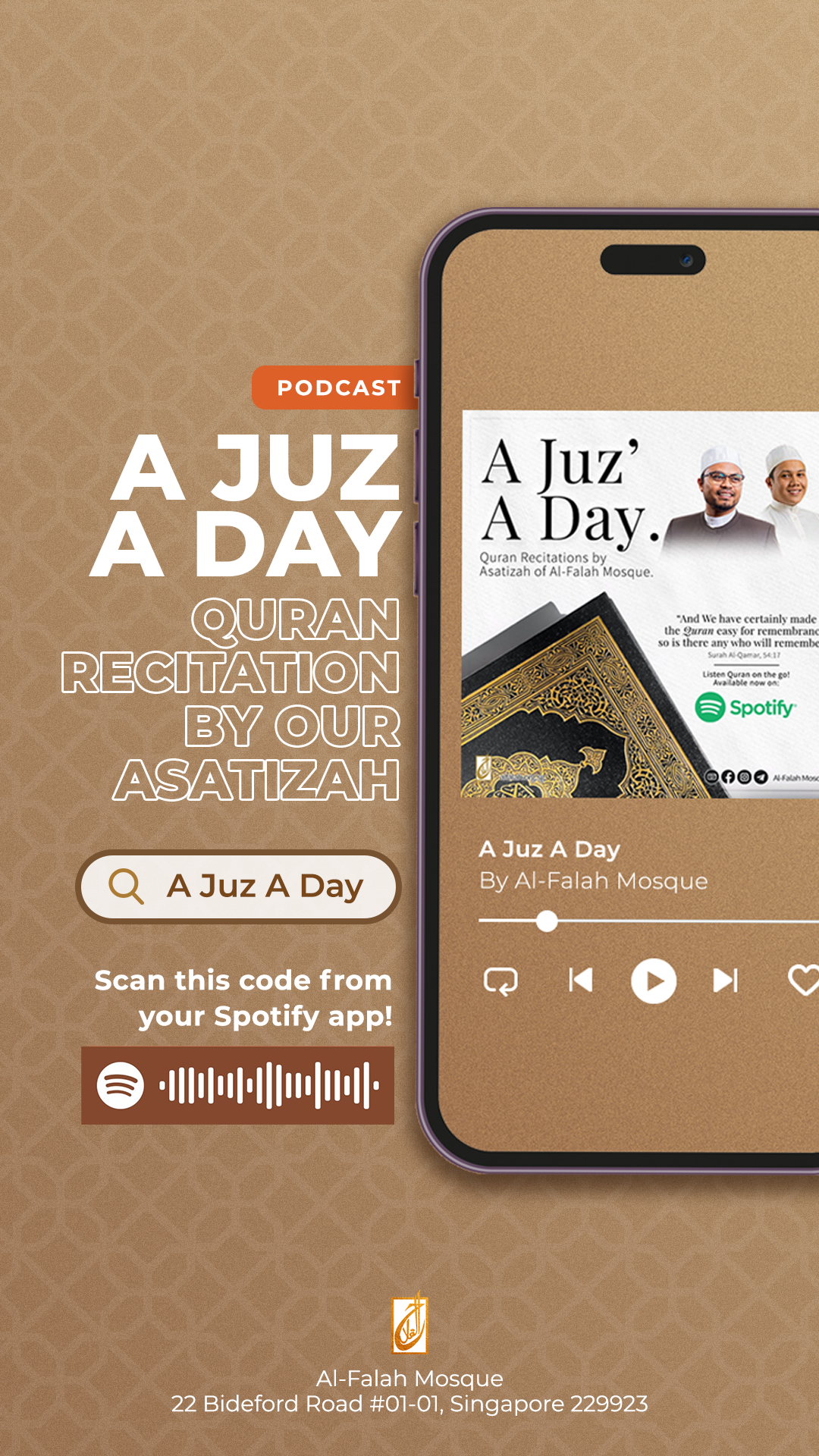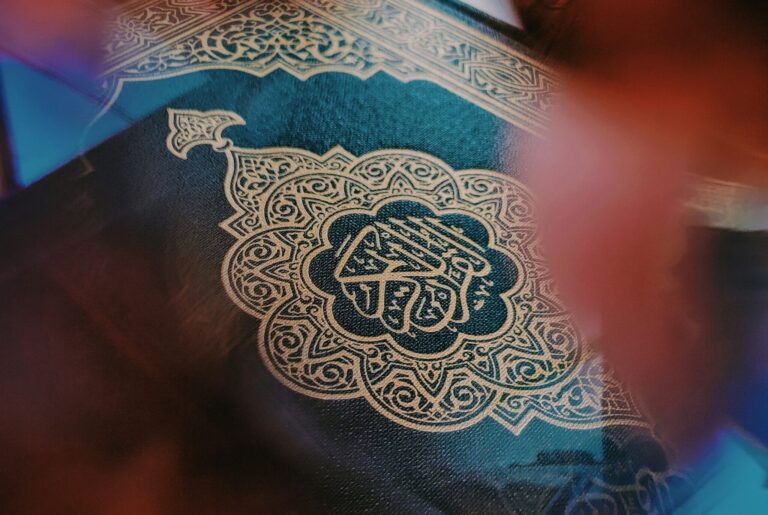Articles
Verses on Happiness in the Qur’an

Verses of Good News & Contentment in the Qur’an (Ayat Bushra Fil Quran Al-Kareem)
This article explores the Islamic concept of happiness as presented in the Qur’an, emphasizing that true happiness is found not in worldly gains but through spiritual fulfillment and a close connection with Allah. The terms Bushra (good news) and Saadah (contentment) highlight the dimensions of happiness as promised by Allah and cultivated through faith and righteous actions. By examining key practices like charity, prayer, forgiveness, and gratitude, Islam offers a path to lasting peace and joy that transcends material pleasures and leads to eternal fulfillment in the Hereafter.
Introduction
Happiness is a universal pursuit, often sought after in various forms like wealth, success, relationships, and experiences. However, in the Islamic worldview, happiness is not confined to worldly gains. Instead, the Qur’an introduces us to a deeper understanding of happiness, one that is intricately connected to spiritual contentment and the pursuit of divine pleasure.
The Meaning of Bushra and Saadah in the Qur’an
In Arabic, the idea of happiness is often expressed by the words Bushra and Saadah. Both terms are significant in the Qur’an, where they are used to convey different dimensions of happiness. Bushra generally refers to glad tidings, often associated with Allah’s promises of mercy and Paradise to the faithful. Meanwhile, Saadah represents a state of well-being and contentment, rooted in spiritual fulfillment and connection with Allah. Together, these terms provide a profound understanding of happiness in Islam, encompassing both the joy found in divine promises and the peace cultivated through faith and righteous living.
The term Bushra in the Qur’an, meaning “good news” is frequently linked with messages of hope and divine assurance for believers. This good news is often tied to the promise of Paradise for the faithful and serves to comfort and encourage them, especially in times of difficulty. For instance, in Surah Al-Baqarah, Allah swt says:
وَبَشِّرِ ٱلَّذِينَ ءَامَنُوا۟ وَعَمِلُوا۟ ٱلصَّـٰلِحَـٰتِ أَنَّ لَهُمْ جَنَّـٰتٍۢ تَجْرِى مِن تَحْتِهَا ٱلْأَنْهَـٰرُ كُلَّمَا رُزِقُوا۟ مِنْهَا مِن ثَمَرَةٍۢ رِّزْقًۭا ۙ قَالُوا۟ هَـٰذَا ٱلَّذِى رُزِقْنَا مِن قَبْلُ وَأُتُوا۟ بِهِۦ مُتَشَـٰبِهًۭا ۖ وَلَهُمْ فِيهَآ أَزْوَٰجٌۭ مُّطَهَّرَةٌۭ ۖ وَهُمْ فِيهَا خَـٰلِدُونَ
“Give good news ˹O Prophet˺ to those who believe and do good that they will have Gardens under which rivers flow. Whenever provided with fruit, they will say, “This is what we were given before,” for they will be served fruit that looks similar ˹but tastes different˺. They will have pure spouses,and they will be there forever.” (Qur’an 2:25)
In this verse, happiness is intrinsically linked to faith and righteous action. The concept of Bushra reinforces that true happiness, according to the Qur’an, is not fleeting but everlasting, deeply rooted in the Hereafter.
On the other hand, Saadah refers to a state of well-being and contentment. This happiness stems from a life of faith and worship, where contentment, gratitude (Shukr), and trust in Allah’s decree (Tawakkul) bring inner peace. This idea of happiness is further highlighted in the Qur’an:
مَنْ عَمِلَ صَـٰلِحًۭا مِّن ذَكَرٍ أَوْ أُنثَىٰ وَهُوَ مُؤْمِنٌۭ فَلَنُحْيِيَنَّهُۥ حَيَوٰةًۭ طَيِّبَةًۭ ۖ وَلَنَجْزِيَنَّهُمْ أَجْرَهُم بِأَحْسَنِ مَا كَانُوا۟ يَعْمَلُونَ
“Whoever does good, whether male or female, and is a believer, We will surely bless them with a good life, and We will certainly reward them according to the best of their deeds.” (Qur’an 16:97)
This “good life” (Hayatan Tayyibah) refers to a life of inner peace, grounded in faith and spiritual fulfillment. It is a happiness that transcends material gain and is instead nurtured by the believer’s unwavering trust in Allah’s wisdom. Islamic teachings further encourage Qana’ah, or contentment, where accepting one’s provision and circumstances is seen as a vital component of true happiness. In Islam, happiness is a state achieved through aligning one’s actions and heart with divine guidance, leading to a life of purpose and peace.
Happiness in Islam
In today’s world, many equate happiness with financial success or social status. However, Islam teaches that true happiness is found through spiritual growth and a strong connection with Allah.
1. Happiness in giving charity (Sadaqah)
Consider the example of charity (Sadaqah). While giving away one’s wealth may seem counterintuitive to the pursuit of happiness, the Qur’an reminds us that charity purifies the soul and brings contentment. Prophet Muhammad (peace be upon him) said:
“Charity does not decrease wealth. No one forgives another except that Allah increases his honor, and no one humbles himself for the sake of Allah except that Allah raises his status.” (Sahih Muslim)
This teaching illustrates that happiness in Islam is derived not from hoarding wealth but from sharing it. The inner peace and joy that come from helping others are far greater than the temporary happiness that material possessions can offer.
2. Happiness in prayer (Solah)
Prayer is another practice that brings happiness. Salah is not just a ritual act but a direct means of connecting with Allah, providing a sense of peace and tranquility. The Prophet Muhammad (peace be upon him) found immense comfort in prayer and would say:
“O Bilal, give the call to prayer, and bring us comfort by it.” (Sunan Abu Dawood)
Prayer is a constant reminder of Allah’s presence, allowing the believer to feel secure, knowing that all matters are in His control. This sense of security and reliance on Allah brings about a profound form of happiness that transcends worldly concerns. Salah also serves as a moment to reflect, realign, and renew one’s intentions, fostering a deeper, enduring happiness.
3. Happiness in forgiving others
Forgiving others is yet another avenue to happiness in Islam. Holding onto grudges or resentment can lead to spiritual unrest, while forgiving others cleanses the heart and brings inner peace. The Qur’an encourages believers to forgive, stating:
وَلَا يَأْتَلِ أُو۟لُوا۟ ٱلْفَضْلِ مِنكُمْ وَٱلسَّعَةِ أَن يُؤْتُوٓا۟ أُو۟لِى ٱلْقُرْبَىٰ وَٱلْمَسَـٰكِينَ وَٱلْمُهَـٰجِرِينَ فِى سَبِيلِ ٱللَّهِ ۖ وَلْيَعْفُوا۟ وَلْيَصْفَحُوٓا۟ ۗ أَلَا تُحِبُّونَ أَن يَغْفِرَ ٱللَّهُ لَكُمْ ۗ وَٱللَّهُ غَفُورٌۭ رَّحِيمٌۭ
“Do not let the people of virtue and affluence among you swear to suspend donations to their relatives, the needy, and the emigrants in the cause of Allah. Let them pardon and forgive. Do you not love to be forgiven by Allah? And Allah is All-Forgiving, Most Merciful.” (Qur’an 24:22)
When we forgive others, we are emulating one of Allah’s greatest attributes, Ar-Rahman (The Merciful). This act of mercy purifies our hearts, freeing us from the weight of negative emotions. It leads to a state of happiness, as we experience the spiritual upliftment that comes from aligning ourselves with divine qualities.
4. Happiness in gratitude (Shukr)
Gratitude, or Shukr, is another pathway to happiness emphasized in the Qur’an. When one reflects on the blessings Allah has bestowed upon them, even the smallest of favors, they develop a sense of contentment. In Surah Ibrahim, Allah says:
وَإِذْ تَأَذَّنَ رَبُّكُمْ لَئِن شَكَرْتُمْ لَأَزِيدَنَّكُمْ ۖ وَلَئِن كَفَرْتُمْ إِنَّ عَذَابِى لَشَدِيدٌۭ
“And [remember] when your Lord proclaimed: ‘If you are grateful, I will surely increase you [in favor]; but if you deny, indeed, My punishment is severe.’” (Qur’an 14:7)
Gratitude shifts our focus from what we lack to what we have, nurturing a deep sense of happiness. This mindset, known as Qana’ah, encourages believers to feel satisfied and fulfilled with Allah’s provisions, avoiding the dissatisfaction that arises from constant comparison. Practicing gratitude leads to spiritual and emotional abundance, bringing believers closer to a state of peace and joy.
Negative Forms of Happiness
It is also important to recognize that not all forms of happiness are beneficial. The Qur’an warns us about the dangers of fleeting pleasures and the pursuit of worldly desires without consideration for the Hereafter. In Surah Al-Hadid, Allah says:
ٱعْلَمُوٓا۟ أَنَّمَا ٱلْحَيَوٰةُ ٱلدُّنْيَا لَعِبٌۭ وَلَهْوٌۭ وَزِينَةٌۭ وَتَفَاخُرٌۭ بَيْنَكُمْ وَتَكَاثُرٌۭ فِى ٱلْأَمْوَٰلِ وَٱلْأَوْلَـٰدِ ۖ كَمَثَلِ غَيْثٍ أَعْجَبَ ٱلْكُفَّارَ نَبَاتُهُۥ ثُمَّ يَهِيجُ فَتَرَىٰهُ مُصْفَرًّۭا ثُمَّ يَكُونُ حُطَـٰمًۭا ۖ وَفِى ٱلْـَٔاخِرَةِ عَذَابٌۭ شَدِيدٌۭ وَمَغْفِرَةٌۭ مِّنَ ٱللَّهِ وَرِضْوَٰنٌۭ ۚ وَمَا ٱلْحَيَوٰةُ ٱلدُّنْيَآ إِلَّا مَتَـٰعُ ٱلْغُرُورِ
“Know that the life of this world is but amusement and diversion and adornment and boasting to one another and competition in increase of wealth and children. Like the example of rain whose [resulting] plant growth pleases the tillers; then it dries and you see it turn yellow; then it becomes [scattered] debris.” (Qur’an 57:20)
This verse reminds us that the pursuit of worldly happiness, if done in excess and without regard for Allah’s commands, leads to disappointment and loss. The happiness that comes from indulging in fleeting pleasures is temporary and often results in regret. Therefore, it is crucial for believers to seek happiness through halal means, focusing on the eternal rewards promised by Allah.
Conclusion
In conclusion, the Qur’an offers a profound and holistic view of happiness, one that goes beyond materialistic pleasures to encompass spiritual contentment and fulfillment. By realigning our understanding of happiness with the teachings of the Qur’an, we can lead lives that are not only fulfilling in this world but also lead to eternal joy in the Hereafter. May Allah grant us the understanding to seek and attain true happiness as He has defined it. Amin.
Disclaimer
Support Our Dakwah










